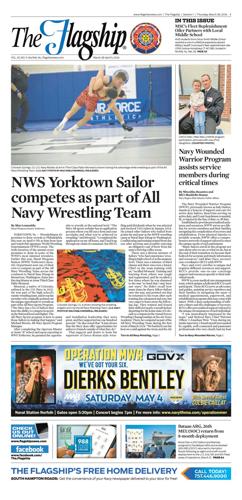U.S. officials say the Pentagon is poised to send $1 billion in new military aid to Ukraine as the Senate begins debate on long-awaited legislation to fund the weapons Kyiv needs to stall gains made by Russia. The decision announced Tuesday comes after months of frustration, as bitterly divided members of Congress deadlocked over the funding. House Speaker Mike Johnson was forced to cobble together a bipartisan coalition to pass the bill. The overall $95 billion foreign aid package is expected to gain Senate approval either Tuesday or Wednesday. About $61 billion is for Ukraine. President Joe Biden promised Ukrainian President Volodymyr Zelenskyy the U.S. would send air defense weapons once the Senate approves the bill.
TOP NEWS
A former MIT researcher has been sentenced to 35 years in prison for the killing of a Yale University graduate student in Connecticut. Qinxuan Pan apologized for his actions Tuesday during a hearing in a New Haven courtroom packed with family and friends of the victim, Kevin Jiang. Pan pleaded guilty to murder in February. Jiang was shot multiple times after leaving his fiancée's apartment in New Haven in February 2021. The motive was never made clear. Police say Pan and Jiang's fiancee had met when they both attended MIT, but she said they were never romantically involved.
Criminal charges say that a Minnesota state senator told police she broke into her stepmother’s home because her stepmother refused to give her items of sentimental value from her late father, including his ashes. Democratic Sen. Nicole Mitchell of Woodbury was arrested early Monday at the home in Detroit Lakes. The arresting officer said he heard Mitchell tell her stepmother she was trying to get some of her dad’s things because the stepmother had cut off contact. The complaint, filed Tuesday, charges the former broadcast meteorologist with one count of first-degree burglary. Court records don't list an attorney for her.
U.S. colleges and universities are preparing for end-of-year commencement ceremonies with a unique challenge: providing safety for graduates while honoring the free speech rights of students involved in protests over the Israel-Hamas war. Since the conflict began, colleges and universities have struggled to maintain a balance between security and civil liberties amid intense student debate and protests. Many schools that tolerated protests and other disruptions for months are now doling out more heavy-handed discipline. That, in turn, has sparked criticism from some students and civil liberties advocates, who contend the crackdowns threaten free speech.













